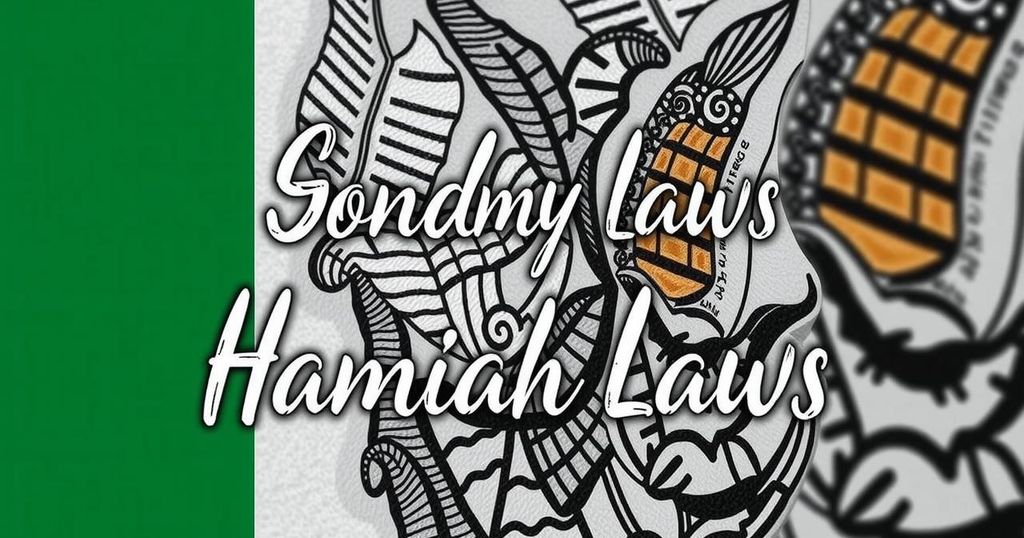The Namibian government has appealed a ruling that invalidated apartheid-era sodomy laws, asserting its stance against homosexuality. Activists argue that this move illustrates an aim to attract support from conservative factions. This legal challenge occurs amidst rising regional tensions regarding LGBTQ rights, with similar developments in Uganda and Burkina Faso emphasizing a broader societal struggle.
The Namibian government has formally contested a recent court ruling that deemed its longstanding sodomy laws unconstitutional. This appeal was initiated following a landmark decision by the High Court, which declared these apartheid-era statutes invalid. The appeal was lodged on July 20 by key officials including Justice Minister Yvonne Dausab and Prosecutor General Martha Imalwa. Advocacy groups, notably the Namibia Equal Rights Movement, have criticized the government’s motives, suggesting it seeks to appease its conservative supporter base while asserting a stance against homosexuality. Despite this setback, activists maintain that Namibia’s Constitution supports the decriminalization of same-sex relations, citing similar progress made in neighboring countries like Botswana and Angola. Parallel developments in the region have seen nations tightening restrictions on LGBTQ rights, as evidenced by recent legislative changes in Uganda and growing enforcement in Burkina Faso. The complications surrounding these legal challenges and social dynamics highlight a significant human rights battleground across Africa.
In Namibia, the sodomy laws in question originated during the apartheid regime, reflecting a colonial legacy that continues to influence contemporary legal and social practices. The High Court’s ruling to declare these laws unconstitutional represents a pivotal shift towards recognizing and protecting LGBTQ rights in the country. The appeal filed by government officials indicates an ongoing struggle between advancing human rights and catering to conservative societal values. Comparatively, the reactions and legislative actions in neighboring countries illustrate a broader regional context where LGBTQ rights are frequently contested, exposing the complex interplay between culture, politics, and human rights in Africa.
The Namibian government’s appeal against the High Court’s decision to decriminalize sodomy marks a critical juncture in the ongoing discourse regarding LGBTQ rights in the country. While activists express optimism about prevailing in the Supreme Court, the situation reflects a larger regional trend of resistance to the recognition of sexual minorities. The juxtaposition of resistance and progress within Southern Africa indicates that the fight for equality remains fraught with legal battles and societal challenges, ultimately underscoring the importance of judicial rulings in shaping civil rights and liberties.
Original Source: www.washingtonblade.com






